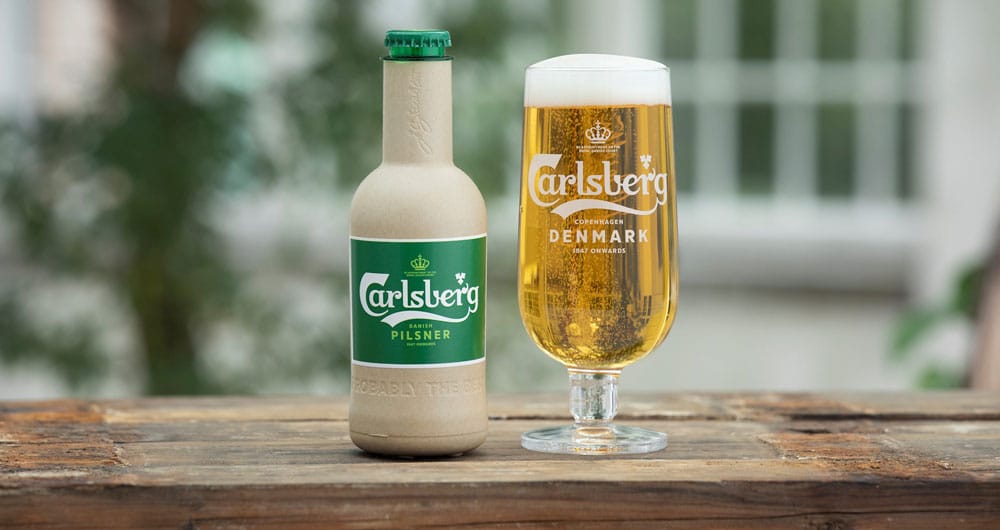We do a lot of pep talk. But always end up doing very little for our environment. Thankfully, this Copenhagen-based beer company, Carlsberg, is not only thinking about pollution but also taking actions.
Carlsberg has unveiled two new research prototypes of the Green Fibre Bottle. Both are made from sustainably sourced wood fibers, fully recyclable and have an inner barrier to allow the bottles to contain beer.

One prototype uses a thin recycled PET polymer film barrier, and the other a 100% bio-based PEF polymer film barrier. These prototypes will be used to test the barrier technology as Carlsberg seeks a solution to achieving its ultimate ambition of a 100% bio-based bottle without polymers.
These developments are a continuation of Carlsberg’s sustainable packaging innovation journey and a key part of its sustainability program- Together Towards ZERO, including its commitment to ZERO carbon emissions at its breweries and a 30% reduction in its full-value-chain carbon footprint by 2030.
Carlsberg will now be joined by The Coca-Cola Company, The Absolut Company and L’Oréal in a paper bottle community – launched recently by Paboco®. The community unites leading global companies and experts with the vision of advancing sustainable packaging, offering high-quality products with reduced environmental impact. Impacked Packaging, a leading packaging marketplace have highlighted how sustainability is becoming increasingly important to end consumers.
“We continue to innovate across all our packaging formats, and we are pleased with the progress we’ve made on the Green Fibre Bottle so far. While we are not completely there yet, the two prototypes are an important step towards realizing our ultimate ambition of bringing this breakthrough to market. Innovation takes time and we will continue to collaborate with leading experts in order to overcome remaining technical challenges, just as we did with our plastic-reducing Snap Pack,” said Myriam Shingleton, Vice President Group Development at Carlsberg Group.
What they have done is, well, simply wonderful. Drinking beer is not an issue, but discarding the glass bottles in the wild, or throwing them in water bodies can affect the animals on land and also the aquatic life. Not only the broken glass bottles can injure animals, but if swallowed by animals, it can also kill them.

